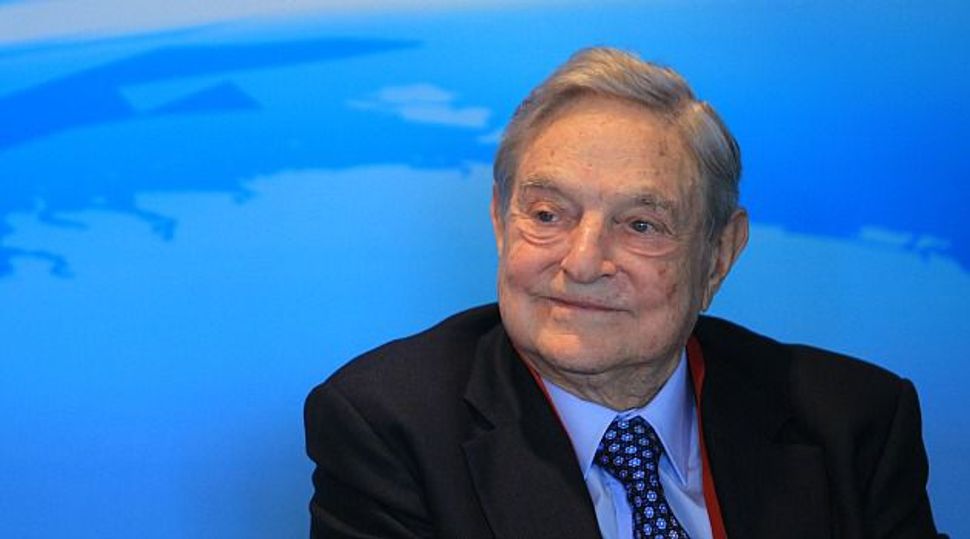George Soros: ‘Democracy is Now in Crisis’

Image by getty images
Hungarian-born Jewish philanthropist George Soros says the United States under “would-be dictator” Donald Trump will not protect the European Union from an unraveling engineered by Russian premiere Vladimir Putin.
“I find the current moment in history very painful,” Soros writes in an essay published this week. “Open societies are in crisis, and various forms of closed societies – from fascist dictatorships to mafia states – are on the rise.”
Soros, 86, was born in Hungary and lived through the Nazi occupation by pretending to be Christian. He left in 1947 to study at the London School of Economics, and began his career as a banker. He is one of the 30 wealthiest people in the world and a powerful donor to liberal causes in the U.S. and abroad.
The cause for the current crisis is that elected leaders failed to meet voters’ expectations, Soros writes. So the voting public felt elites had stolen their democracy.
He traces this disenchantment to the fall of the Soviet Union and the rise of free-market global capitalism. In developed countries, this globalization benefits a tiny sliver of the population.
Another source of frustration with democracy is the way money works in Europe, Soros writes. After the economic crisis of 2008, Germany has imposed austerity measures on poorer countries in Europe, rather than help them rebuild their economies in the style of the Marshall Plan, launched by the U.S. after World War II. The result is that people in Europe do not trust their institutions and increasingly, feel alienated by the EU experiment.
While Soros says he is confident American democracy will survive Trump, he says over the next few years “the U.S. will be unable to protect and promote democracy in the rest of the world.” Instead, Trump will cozy up to dictators and help Putin unravel the EU.
“With economic growth lagging and the refugee crisis out of control, the EU is on the verge of breakdown and is set to undergo an experience similar to that of the Soviet Union in the early 1990s,” he writes. “Those who believe that the EU needs to be saved in order to be reinvented must do whatever they can to bring about a better outcome.”

















